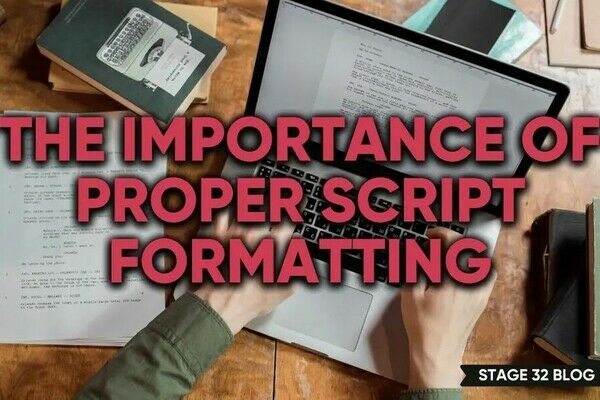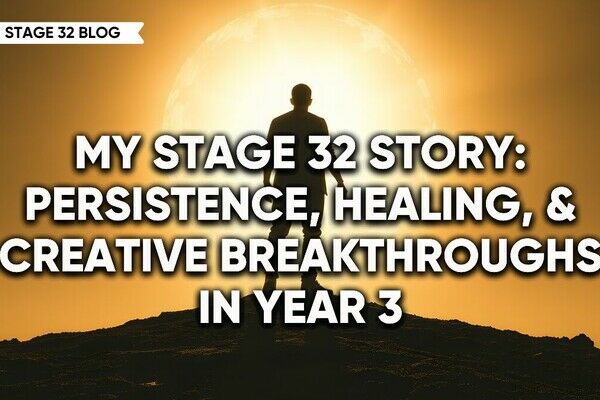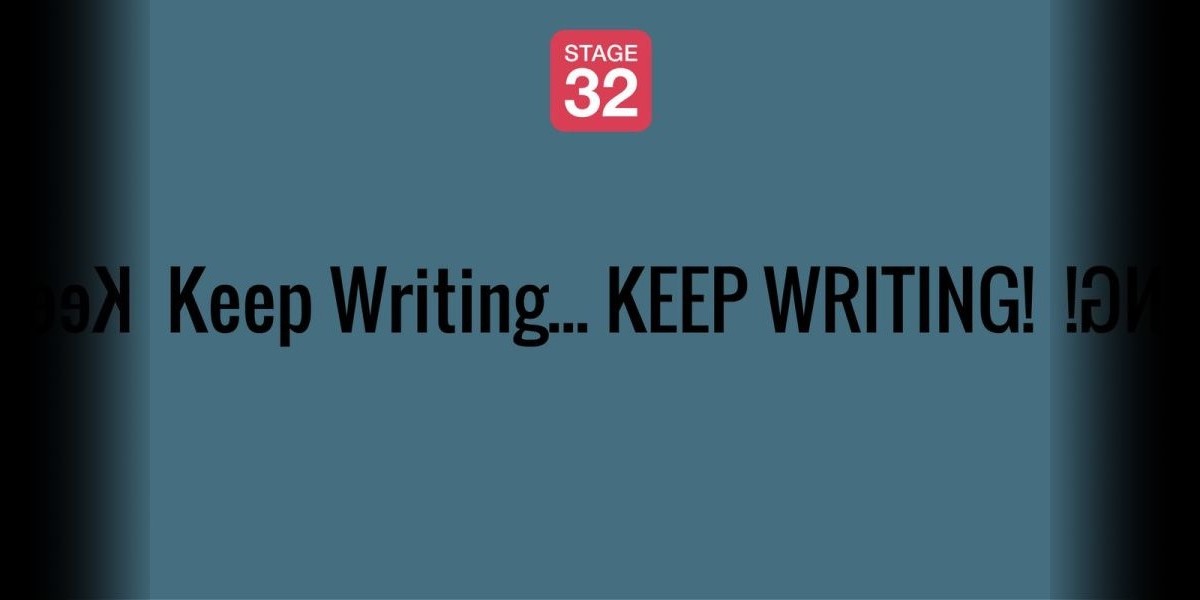Seeking an Agent
I’ve been providing advice here on Stage32 for a couple of years now, but that advice is hard to trace, as it has been individualized regarding several postings I have read in The Lounge. Richard (RB) Botto, Stage32’s founder, had mentioned to me I should put together agent-seeking advice, that I have developed through my own experience, and share that advice in a Guest Blog.
The Uninformed Approach
So, you’re hard at work, toiling away at your desk in a building of many floors with cubicles everywhere. Some well-meaning individual is passing by in front of your wall when all of a sudden, up over that wall comes a volley of disjointed papers, and that individual keeps their break-neck pace intact, as you cower with fear at the unprovoked physical attack. An unknown assailant has just assaulted you! What would your reaction be?
Well, for publishers and agents alike, it’s an everyday experience. I suppose those that do the throwing think that this attention-getting model should work, as it is fast, and you faintly hear, “I should be hearing back within the hour,” as they brag to their peers elsewhere.
The other commonplace mantra is to ask everyone for assistance on how to accomplish your task without ever having to do any of your own research. Many a posting in The Lounge contains no responses from just such a plea. I have also seen many a posting in The Lounge where the groundwork is laid out and a plethora of responses ensues, often-times well over 50, beginning with a responder filling in the one missing piece the poster was seeking. Others provide so much advice that the trail quickly becomes somewhat off-topic, much to the delight of all involved, as it opened several other key issues the poster never considered. This is not only the power of Stage32, it’s the power of laying the ground work and letting your audience know you’ve done your homework thus far.
The Assent to Knowledge
The groundwork begins as a foray into the world of publishers. This very quickly informs the researcher that there is a distinct barrier between the publisher and the author – the literary agent. A literary agent is the go-between that represents the author and petitions potential publishers through marketing their roster of authors and their authors’ unpublished works. With the proper literary submission package, the publisher bites down hard on the literary submission, and suddenly, the author has a publishing deal, perhaps including a sizable advance. You’ll probably earn 17 ½ cents on the dollar of every hard/soft cover retail sale.
Almost every literary agency’s website is structured the same way. For the informed, it’s an easy navigation to where you want to start: The Submission Guidelines. Here, the researcher delves into the overarching structure of just how this agency operates: Who to contact; how to contact; and what to provide. There is a substantial difference between agencies, but this is the gist of it all.
The Step-by-step Analysis
To keep the rest pure and simple, here’s an easy step-by-step approach on how to get that one agent you desire to notice you.
Step 1 – The Agency Search
Begin your search with lesser-known agencies to perfect your pitch, and to perfect your query letter. Once you’ve been through hits and misses (perhaps no hits at all,) you’ll be able to pitch to the bigger agencies. The largest agencies operate by referral only, so don’t bother submitting if there are no submission guidelines and only a phone number; this is a big clue.
Step 2 – The Submission Guidelines Review
Review the agency submission guidelines. Invariably, this will let you know if the agency is accepting queries. If the agency is not, seek out another agency and redo this step. If this agency is, proceed to step 3.
Step 3 – Choosing the Appropriate Agent
The agency submission guidelines will offer you some advice in some cases: Review the agent’s on-line bio for the agent’s background and the agent’s submission guidelines. This will determine for you who’s searching for your content. There is no point submitting to a rom-com agent the next sci-fi mega-hit. Even though the agency is seeking submissions, individual agents may not be. Review these bios carefully.
Step 4 – Multiple Choices
If you are stuck with multiple agents at the same agency being a good fit for your work, review their clients. Many authors’ book sales sites offer 10% of their novels for free previewing. Here’s your chance to identify with an author that mirrors your writing style, a real possibility for making a connection with their agent. But be warned: One of the fundamental errors is messaging multiple agents in the same query. Should you be so unwise as to perform that way, kiss them all and their respective agencies good-bye forever, as this is regarded in the industry as the ultimate insult.
Step 5 – The Ask
Once you settle on a specific agent, query that agent and only that agent at this agency at this time. If they reply they are not seeking clients, you are free to query another agent at the same agency. Use a three-fold approach.
Send an anonymous one liner with the subject “Submission Query” to a fresh agent. Include only the following in the body of the message (I find e-mail instead of a formal letter at this stage most effective): “Are you currently accepting new clients?” By starting out this way, you’re still anonymous and not data dumping on anyone. There’s no fancy signature block, no formal addressing; just the one-liner query. Send it and wait for a response from this agent. It should come fairly quickly as a “Yes.” I’ve only hit one agent where their bio was not up-to-date, and I received a “No,” even though the agent bio said, “Yes.” If they are not seeking submissions, and there are other agents you have identified, move onto the next agent at this agency. If you’ve exhausted your list for this agency, move onto the next agency and go back to step 2.
Step 6 – The Query Itself
Should you receive your “Yes” response, this is it for this agency; forget about querying others at this agency on your list. Reply with a six-paragraph submission. Start it as a new message, not as a reply to their reply, or if they only request formal letters (I avoid these agencies,) this is the query letter moment. I prefer the informal, so I use first names.
Entitle it as “Submission Query – [Manuscript Title]”.
First paragraph: “Hello, [first name]. I am [your preferred author name (avoid the pen name at this point)], and I have a manuscript of [number of words] words in the [genre] genre. [New paragraph]
"I see you represent [represented client’s name]. I have read their work entitled, “[represented clients published title,]” and I strongly identify with this author, as you do. [New paragraph]
"I have been writing for [number of years/months] and have a completed manuscript entitled, “[Manuscript Title]”, [Now comes the hook: The logline goes here. If you know not of what a logline is, hit info on your TV remote to garner about what the current episode playing out on your TV is.] [Include your pen name if you go by one here as a separate sentence of explanation.] [New paragraph]
“Please feel free to contact me to receive a sample of my writing. [New Paragraph]
I look forward to hearing from you.” [New paragraph]
[Final paragraph – formal signature block: [Preferred full name] [(pen name)]; [Mailing address]; [blank line]; [Telephone numbers]; and [E-mail addresses matching your telephone numbers – keep your business e-mail under your business telephone, and likewise for your personal e-mail].
Check, double-check, and triple-check the grammar, spelling, names, titles, sentence structure, and everything else before you send. Nothing is more embarrassing than finding that one seemingly insignificant [to you] typographical error that warrants the delete key coming into play. This is the world of the grammatically correct, and they have the power to make or break you.
Step 7 – The Real Wait Begins
At this point, you are probably finished with this agency, so move on to the next agency on your list. You have more than a 75% chance of a no response rate at this point, so be prepared for rejection. Responses can take up to two years to be received, as agents shut down their submission access to focus on their query backload in periodic cycles. If this agency has responded and has directed you specifically, follow those instructions exactly. If the request is for the first 10 pages double-spaced as a paper submission, that is what you do, up to the last complete sentence on page 10. Don’t insult them with a truncated sentence that spills onto page 11, or an entire 16-page chapter. Should you reach this stage, you have about a 66% chance of landing that agent because your style mirrors one of their represented clients, the genre matches their bio, and you have respected the all submission guidelines.
My Result
I had elected to go self-published, so a literary agent was not required in my case, but either a talent or film agent was a necessity. However, I did connect with many literary agents, and I retained those connections “just in case.” I reached out to agents through their agency’s website, but also through Stage32 and LinkedIn.
The Before-and-after
With respect to my own personal agent-seeking success, I’m proud to state that after a year of searching, my talent agent and I co-signed a representation agreement on May 11, 2014, but the story doesn’t end there. In September 2016, I started searching anew, and an hour-and-a-half later, I was bringing in a co-agent, a film agent in New York, to assist my talent agent with book-to-film rights.
There’s a whole lot more to this story than seeking an agent. How did this come about that I wrote a novel worthy of signing with two agents? What is the end result expected to be? Rest assured, I’m writing the entire back story to this great adventure of mine that began in 2008, and I’m certainly open to posting pieces of it here.
About Jeff E. Gregory:
Mr. Gregory has five self-published titles of thriller fiction and is actively writing more. His writing journey began as a bizarre set of circumstances that evolved into the greatest adventure of his lifetime.
Married 28 years and counting and one daughter later, Gregory still resides in his hometown of Ottawa, Canada’s capital.
Like this blog post? Please share it on social media (Facebook, Twitter, LinkedIn, email etc) by using social media buttons at the top of the blog. Or post to your personal blog and anywhere else you feel appropriate. Thank you.
As always, we welcome thoughts and remarks on ANY of the content above in the Comments section below...
| Women Write Now: Breaking Barriers in Film, TV & The Web |
| Keep Writing... KEEP WRITING! |
Search Stage 32 Blog
There are now 4033 blog posts for you to enjoy. Search them all by tags below.
Acting, Advice, Cinematography, Coffee & Content, Composing, Contests, Distribution, Featured, Filmmaking, Financing, Inspirational, Networking, Producing, Screenwriting, Success Stories, Tips, Trending,Relevant Tags
Recommended Articles

Insider Intel: A-listers Are Dead. Long Live A-listers.

7 Life Hacks For Creatives

Stage 32 Now Certifying Centro de Portugal Film Commission!

Happy Thanksgiving From Stage 32: We Are Thankful For YOU

The Importance of Proper Script Formatting

Coffee & Content: Why Your Next Step Matters More Than the Perfect Step

Insider Intel: The Studio War & The Rise of Indies

Green Lights and Grey Areas: Expanding Creative Collaboration in Publishing

My Stage 32 Story: Persistence, Healing, & Creative Breakthroughs in Year 3






